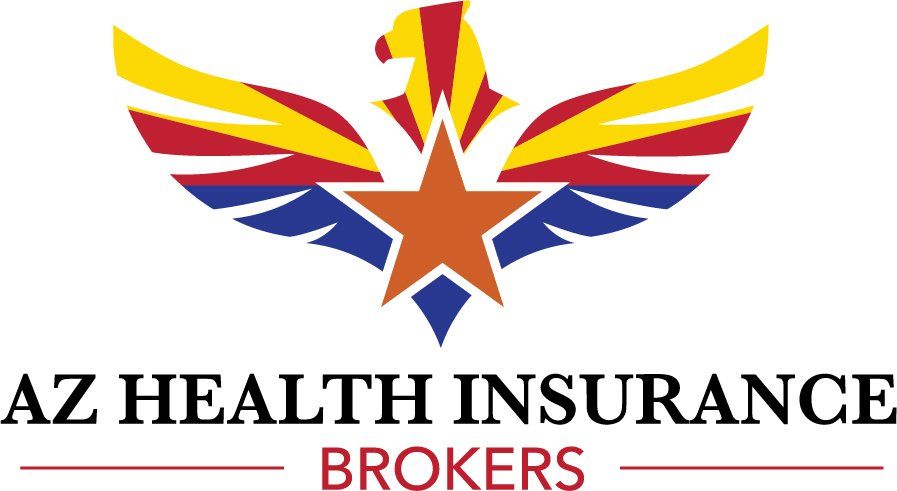I Think I Signed Up for the Wrong Insurance Plan – What Should I Do?
Signing up for the wrong health insurance plan happens frequently. There are a lot of health insurance plan details and specifications to consider. When you’re under pressure to sign up before the enrollment deadline, it may result in making the wrong choice.
If you’re unsure about the
insurance plan you chose at work or
on your own, or you’re having regrets because you found a
better health insurance plan option, you may be wondering what your next steps are. Do you have to wait until the next
health insurance enrollment period? Are you stuck with a
health insurance plan you no longer want? This guide explains
what to consider when signing up for health insurance.
Key Takeaways
- Some common reasons for realizing you’ve signed up for the wrong health insurance plan include: your preferred doctor’s not in-network, you’re paying too much for health coverage you don’t need, and your prescriptions aren’t covered by your insurance plan.
- When you’ve signed up for the wrong insurance plan or one that doesn’t cover your preferred doctor(s) or prescriptions, you have options. You may be able to find low-cost prescriptions by using coupons or signing up for an international mail-order. You may find that your current plan actually does make financial sense because of the premium and deductible costs when comparing the plan against out-of-pocket copay costs. You may be able to sign up for a new private plan, even outside of traditional Affordable Care Act (ACA) open enrollment dates. Talking with an expert health insurance broker can help you navigate your options.
- If you aren’t sure if you signed up for the right or wrong insurance plan, talk with an expert health insurance consultant who can compare your budget, plan coverage and alterative options to see if there’s a better option available.

1. Evaluate Your Current Health Insurance Plan
First, evaluate your current health insurance plan to determine that there really may be a better option available to you. Consider specific health insurance details, including:
- Health insurance monthly premium cost
- Health insurance deductible
- Health insurance plan doctors available
- Health insurance plan copay costs
- Health insurance plan out-of-pocket maximum
Think about the answers to these questions:
- Does your current plan fit your and your family’s healthcare needs?
- Can you see the doctors you want to see?
- Do your healthcare plan’s costs fit your or your family’s budget?
It’s also important to look at the type of health insurance plan you signed up for. The three main types of health insurance plans are health maintenance organization (HMO), preferred partner organization (PPO) and exclusive provider organization (EPO). You may want to switch from one type to another based on the details explained below.
HMO
An HMO health insurance plan requires that you select a primary care physician who is your main healthcare provider.
If you need to see a specialist doctor, your primary care provider will need to refer you to that specialist in order for your healthcare expenses to be eligible for health insurance coverage. If you see a healthcare specialist without a referral, or one who’s outside of the HMO network, you’ll likely be responsible for all the costs associated with your visit or treatment.
PPO
A PPO plan has a preferred list of providers for all types of physicians. If you’re on a PPO plan, you’re not required to see a primary care provider, and you don’t need a referral to see a healthcare specialist.
If you see a doctor on the preferred list of providers, you’ll likely have a larger option of your bill covered, compared to if you choose to see a doctor who’s not on the preferred list of providers.
EPO
An EPO plan is like a hybrid of an HMO and a PPO. EPOs may be less expensive than other plans, but they may be more restrictive in the doctors you can see. You don’t need a referral to see a specialist on an EPO plan, but you will be responsible for covering out-of-network costs.
2. Compare Your Current Plan to Other Available Plans
Once you’ve clarified the details of your current plan, you can compare them against what else is available. To understand the other options that may be available, look at your current insurance provider’s options to see what other types of plans they offer.
Answer the same questions above to compare your answers. In particular, pay attention to the following.
Are you paying a lot of out-of-pocket costs?
If your health insurance out-of-pocket costs are high, you may want to consider switching to a health insurance plan that has a higher monthly premium but that offers lower out-of-pocket costs.
You may find yourself in a situation where you’re paying a lot of out-of-pocket expenses because you require frequent medical visits, or you need a lot of prescriptions filled. If your family’s health situations require a lot of healthcare and/or prescriptions, you may want to look for a plan with lower out-of-pocket costs.
Are you paying high health insurance premiums, but you’re not close to reaching your deductible?
If you pay high monthly premiums, but you never come close to meeting your deductible, you may be able to get the healthcare coverage you need with a plan that has a lower monthly premium amount and a higher deductible.
Keep in mind that choosing a higher deductible health insurance plan could cause issues if there’s an unforeseen emergency or an expensive medical event you have to deal with. Make sure to weigh the cost versus the risk to make a decision you’re comfortable with.
Are your preferred doctors out-of-network?
If your preferred doctors are out-of-network with your plan, you’ve likely signed up for the wrong plan. You can try to find a plan in which your preferred providers are in-network. Otherwise, you may have to pay a lot out-of-pocket, depending on how frequent your visits are.
3. Begin the Process to Change Plans
When you determine you want to switch health insurance plans, you can begin the process to change what you have. You may currently have a plan through your employer or through your spouse’s employer. Or, you might be on an Affordable Care Act (ACA) plan. Or, you might have a private health insurance plan, like through an individual health insurance plan or family health insurance plan.
If you have a group insurance plan through work, or your spouse does, contact the human resources department to check about the possibility of modifying your choices.
When that’s not an option, you may qualify for a special enrollment period for healthcare insurance. Special enrollment periods are offered to those who have experienced a qualifying life event, such as a marriage, divorce, death or job change. You typically have up to 60 days after a qualifying life event to switch healthcare plans.
If you’re outside of the health insurance open enrollment period, and you don’t qualify for a special enrollment period, you may have access to private health insurance plan options that could better meet your needs. The insurance experts at AZ Health Insurance Brokers can help you determine:
- Whether or not there’s a better health insurance plan available to you, in terms of healthcare coverage, costs or both
- How you can get better healthcare coverage if you missed the open enrollment period
There’s no cost to talk with a health insurance expert at AZ Health Insurance Brokers. Call 602.617.4107,
contact us online or email
quotes@azhealthinsurancebrokers.com.
Wrong Health Insurance Plan FAQs
How do I know if it’s worth switching health insurance plans?
Carefully review the benefits, costs and coverage options of your current plan and plans you’re considering. Compare what they offer versus what you need, to ensure a different plan meets your healthcare requirements and fits within your budget.
Can I cancel my current health insurance plan and enroll in a new health insurance plan?
Yes, in many cases, you can cancel your current health insurance plan and enroll in a new health insurance plan. You may have options through your work insurance provider, through a special enrollment period for healthcare, or by choosing a private health insurance plan.
What happens to money I’ve already spent toward my deductible/out-of-pocket maximum if I change health insurance plans?
Any money you spent toward a deductible/out-of-pocket maximum on one plan doesn’t carry over to a new plan. When you sign up for a new plan, you’ll need to start over on what you pay toward a deductible/out-of-pocket maximum.
How do I ensure my doctors and prescriptions are covered if I switch health insurance plans?
Before you switch health insurance plans, check with the new health insurer to see if your providers are covered in their network. You can also call your doctors’ offices individually to check. For prescriptions, check with the new insurer’s formulary to see if your prescriptions are covered by their prescription drug plan.
Will changing health insurance plans mid-year affect my ability to contribute to a tax-advantaged account, like a health savings account (HSA)?
If you’re enrolled in a high-deductible health plan (HDHP) for only part of the year, your contribution limit for an HSA for that year may be prorated, based on the number of months you were eligible to contribute.
What are the special qualifying life events that let you switch ACA health insurance?
The qualifying life events that trigger ACA special enrollment opportunities include: changes in household (marriage, having a baby, adopting a child, placing a child for foster care, getting divorced, legally separating or losing health insurance when someone dies); changes in residence if you move; and changes in health coverage due to loss of health coverage through work. Generally, you qualify if a life event took place in the past 60 days.
What should you do if your doctor’s not covered in your health insurance plan?
Your options include paying for your doctor’s visits in cash, finding a new doctor, or switching insurance plans. If you want a new insurance plan that will cover your doctor, contact a health insurance broker to learn about special enrollment period options or private plans available.
What should you do if your health insurance doesn’t cover your prescriptions?
Your options include switching health insurance providers, finding an alternative prescription your insurance does cover, getting a coupon through a site like GoodRx or the manufacturer, or getting a prescription through an international mail order pharmacy. If you want to switch health insurance brokers, contact AZ Health Insurance Brokers to learn about your options.
What are the benefits of selecting a private health insurance plan if you have to change health insurance?
Private plans typically have a wider provider and pharmacy network because many of them are preferred provider organizations (PPOs), compared to ACA Marketplace plans, which are often health maintenance organizations (HMOs). If you signed up for an ACA Marketplace plan, and your healthcare provider isn’t covered, you may be able to find a private plan that can cover your preferred provider.
Can you have two health insurance plans?
Yes, it’s legal to have dual health insurance coverage. When you have two health insurance plans, one will be considered your primary insurance plan, and the other will be a secondary insurance plan. You may have two health insurance plans for a variety of reasons, such as having your own personal healthcare coverage to see the doctors you want, as well as secondary coverage through your spouse’s healthcare coverage at work.











